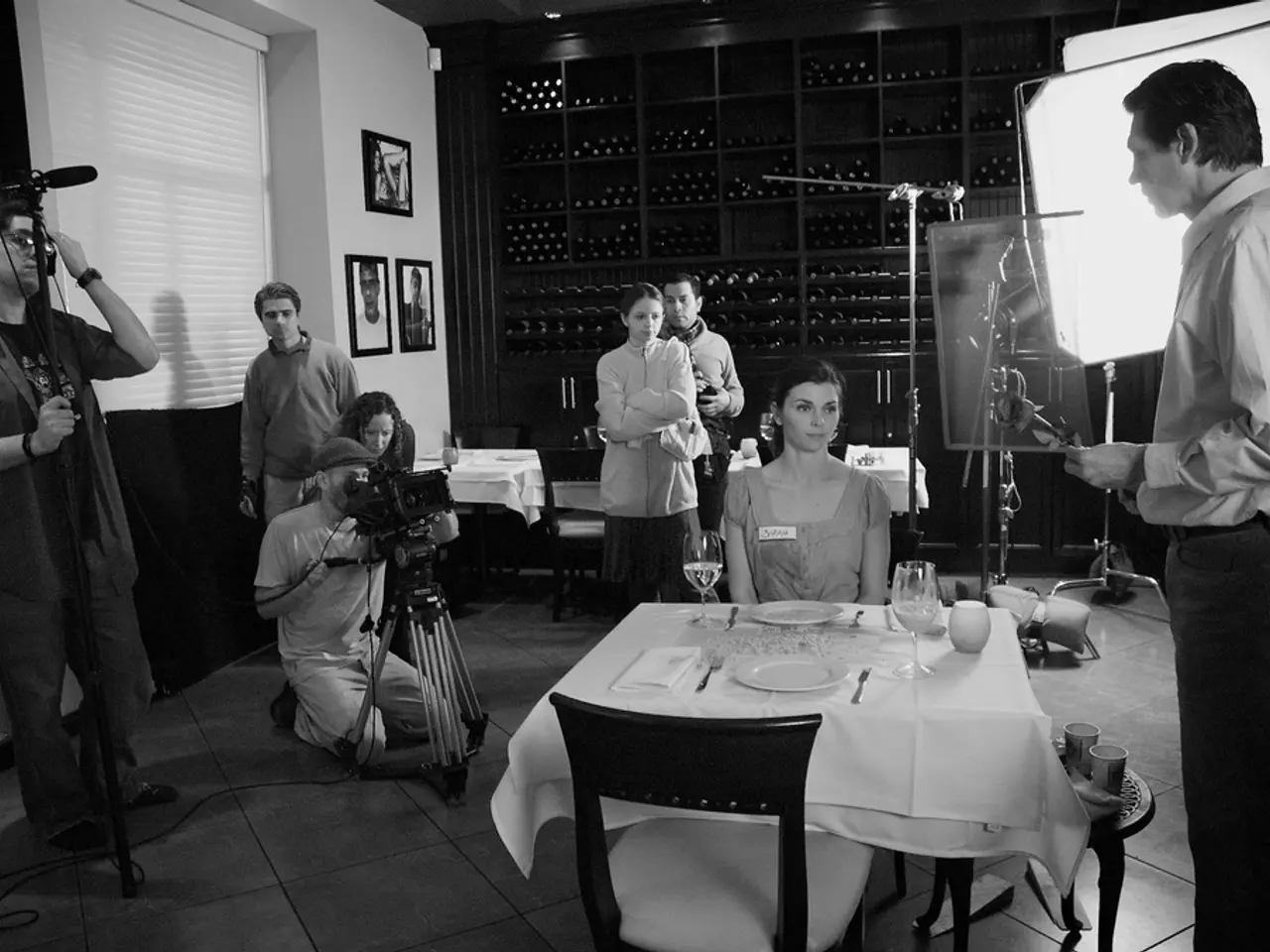The seductive lure of nostalgia's moral dilemma
In the ever-evolving world of media, a trend that has been gaining traction is the nostalgic revival, as seen in recent projects such as Danny Boyle's 28 Years Later, Marvel's Fantastic Four, James Gunn's Superman reboot, and Lena Dunham's Too Much. This wave of nostalgia reflects a broader cultural and marketing strategy that capitalises on emotional connection, comfort, and familiarity.
Nostalgia, with its ability to evoke positive emotional recall, offers a sense of safety during uncertain times and connects different generations through shared or imagined experiences of the past. Consumers, especially in uncertain or fast-changing social contexts, find nostalgic content comforting and emotionally safe, driving engagement and positive feelings towards the media or brand presenting it.
One example of this trend is Danny Boyle's 28 Years Later. The film portrays an isolated community finding strength in visions of nostalgic Britain, but ultimately ends up trapped in regressive and cruel worldviews. This serves as a cautionary tale about the dangers of blindly romanticising the past and the importance of critically engaging with nostalgia.
Philosopher Mark Fisher sees nostalgia as part of the "slow cancellation of the future," eradicating possibility and free-thinking. To avoid this, we should believe that the future exists and use the past to create something that has never occurred before, taking what we want from the past and jettisoning what we don't.
Nostalgia also bridges generational divides. Older audiences recall their memories, while younger ones experience retro culture as novel or aspirational. This broadens the audience for shows, films, and marketing campaigns rooted in past decades.
However, successful nostalgia is not mere replication but requires rooting the past in relevant present-day contexts to avoid feeling stale or outdated. It is about reinterpretation that resonates with contemporary audiences. For instance, the recent trend of 80s/90s remakes has led to significant engagement and subscription increases.
Nostalgia naturally evolves to reflect different decades as society ages; the '90s are currently prominent, but the 2000s are emerging as the next wave of "throwback" content. This trend helps creators and marketers engage consumers deeply and sustain interest in a media-saturated landscape.
Yet, it's important to remember the words of director Danny Boyle, who criticises nostalgia for casting the past as something to return to, without remembering its horrors and shortcomings. Nostalgia might energise us, but it should be used selectively and critically, aiming to be better than what we once were, not merely the same.
In conclusion, the nostalgic trend in modern media is a powerful tool for engagement and commercial success. However, it should be used with caution, critically engaging with the past to create something meaningful and accessible for today's diverse audiences, while avoiding the pitfalls of romanticising the past and eradicating the potential for the future.
References:
[1] Thompson, A. (2021). The Nostalgia Economy. Wired. Retrieved from https://www.wired.com/story/the-nostalgia-economy/
[2] Kakutani, M. (2021). Book Review: 'The Nostalgia Economy' by Ashley C. Ford. The New York Times. Retrieved from https://www.nytimes.com/2021/04/07/books/review/the-nostalgia-economy-ashley-c-ford.html
[3] Schmidt, A. (2021). The Nostalgia Economy: Why 1990s Culture Is So Hot Right Now. NPR. Retrieved from https://www.npr.org/2021/04/01/982118305/the-nostalgia-economy-why-1990s-culture-is-so-hot-right-now
[4] Hsu, T. (2021). The 2000s Are the Next Wave of Nostalgia. The New York Times. Retrieved from https://www.nytimes.com/2021/09/28/arts/music/2000s-nostalgia.html
[5] Tapper, S. (2021). Why Nostalgia Is So Powerful in a Pandemic. The Atlantic. Retrieved from https://www.theatlantic.com/culture/archive/2020/04/nostalgia-pandemic-2020/610038/
- In the realm of entertainment, such as movies-and-tv, the incorporation of ethical values in nostalgic content can create a deeper resonance with audiences, fostering a sense of shared ethics that transcends generations and fosters a more nuanced and critical engagement with the past.
- As the future of entertainment continues to evolve, it is crucial for creators and entertainers to adopt an ethical approach in their reinterpretation of nostalgia, ensuring that the marketing and consumption of nostalgic content promotes values that are not only emotionally safe but also intellectually stimulating, promoting free-thinking and the potential for a better future.








